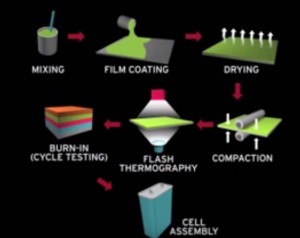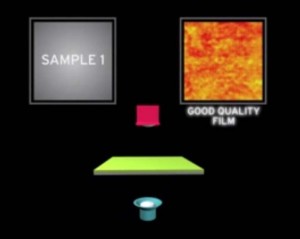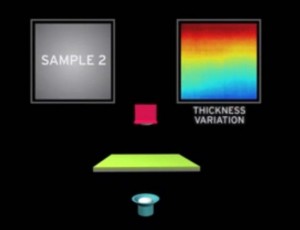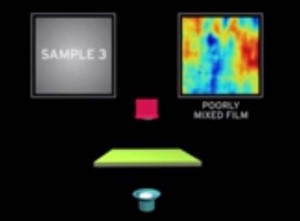Advanced Manufacturing
We develop end-to-end solutions to support smart decision making in order to realize reliable and cost effective manufactured products including lightweight aircraft, automobiles and wind turbines. We have invented new machine vision measurement systems that give manufacturing processes the ability to see and correct unseen flaws in products. We have also pioneered new analytical methods for quantifying uncertainty in manufacturing processes to link variations in these steps to product performance.
For example, lithium batteries are constructed using a series of electrodes that are mass produced in a process such as the one illustrated below (loop the video). There is currently no technology for quickly assessing the quality of these electrodes as they are manufactured. The problem is that small variations in thickness of the coating or flaws such as bubbles and scratches can result in “hot spots” in the battery after many charging and discharging cycles leading to premature failure, so a technology for quality control in electrodes is highly desirable to extend battery life. We have developed a high-speed infrared measurement system that detects these kinds of subtle flaws in lithium battery electrode coatings. In less than half a second, the system flashes the battery with a thermal heat flux and measures the surface temperature with a high speed, high resolution infrared camera. By analyzing the resulting temperature maps, flaws can be readily identified and corrected in the manufacturing process before assembling a faulty battery. This type of in-line diagnostic approach in manufacturing using machine vision approaches will make the machines that make products more intelligent resulting in more reliable and cost effective products for the manufacturer and consumer.

Click to see video: Illustration of process to manufacture lithium battery electrodes showing how flash thermography in-line diagnostic technique can be used midway in the process to rapidly detect and correct flaws in the electrode.

Click to see video: Example of a flash thermography result where the electrode film has a good quality.

Click to see video: Example of a flash thermography result where the electrode film has a small thickness variation that may cause reliability issues over time as the battery is operated.

Click to see video: Example of a flash thermography result where the electrode film has subtle variations in composition that may cause reliability issues over time as the battery is operated.

Connect with Vanderbilt
©2024 Vanderbilt University ·
Site Development: University Web Communications